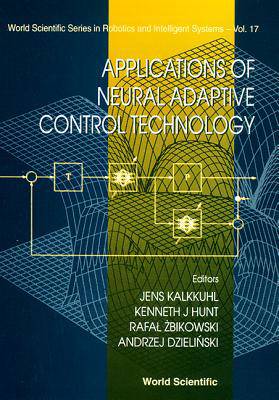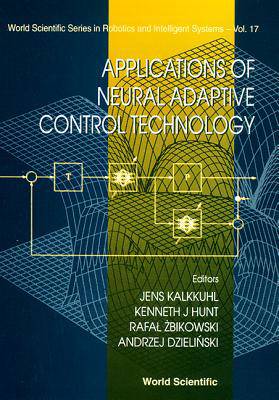
Bedankt voor het vertrouwen het afgelopen jaar! Om jou te bedanken bieden we GRATIS verzending (in België) aan op alles gedurende de hele maand januari.
- Afhalen na 1 uur in een winkel met voorraad
- Gratis thuislevering in België vanaf € 30
- Ruim aanbod met 7 miljoen producten
Bedankt voor het vertrouwen het afgelopen jaar! Om jou te bedanken bieden we GRATIS verzending (in België) aan op alles gedurende de hele maand januari.
- Afhalen na 1 uur in een winkel met voorraad
- Gratis thuislevering in België vanaf € 30
- Ruim aanbod met 7 miljoen producten
Zoeken
Applications of Neural Adaptive Control Technology
€ 162,45
+ 324 punten
Omschrijving
This book presents the results of the second workshop on Neural Adaptive Control Technology, NACT II, held on September 9-10, 1996, in Berlin. The workshop was organised in connection with a three-year European-Union-funded Basic Research Project in the ESPRIT framework, called NACT, a collaboration between Daimler-Benz (Germany) and the University of Glasgow (Scotland).The NACT project, which began on 1 April 1994, is a study of the fundamental properties of neural-network-based adaptive control systems. Where possible, links with traditional adaptive control systems are exploited. A major aim is to develop a systematic engineering procedure for designing neural controllers for nonlinear dynamic systems. The techniques developed are being evaluated on concrete industrial problems from within the Daimler-Benz group of companies.The aim of the workshop was to bring together selected invited specialists in the fields of adaptive control, nonlinear systems and neural networks. The first workshop (NACT I) took place in Glasgow in May 1995 and was mainly devoted to theoretical issues of neural adaptive control. Besides monitoring further development of theory, the NACT II workshop was focused on industrial applications and software tools. This context dictated the focus of the book and guided the editors in the choice of the papers and their subsequent reshaping into substantive book chapters. Thus, with the project having progressed into its applications stage, emphasis is put on the transfer of theory of neural adaptive engineering into industrial practice. The contributors are therefore both renowned academics and practitioners from major industrial users of neurocontrol.
Specificaties
Betrokkenen
- Uitgeverij:
Inhoud
- Aantal bladzijden:
- 316
- Taal:
- Engels
- Reeks:
- Reeksnummer:
- nr. 17
Eigenschappen
- Productcode (EAN):
- 9789810231514
- Verschijningsdatum:
- 4/09/1997
- Uitvoering:
- Hardcover
- Formaat:
- Genaaid

Alleen bij Standaard Boekhandel
+ 324 punten op je klantenkaart van Standaard Boekhandel
Beoordelingen
We publiceren alleen reviews die voldoen aan de voorwaarden voor reviews. Bekijk onze voorwaarden voor reviews.








